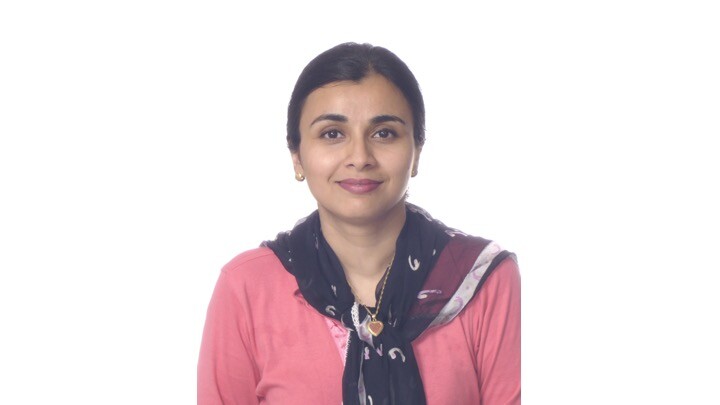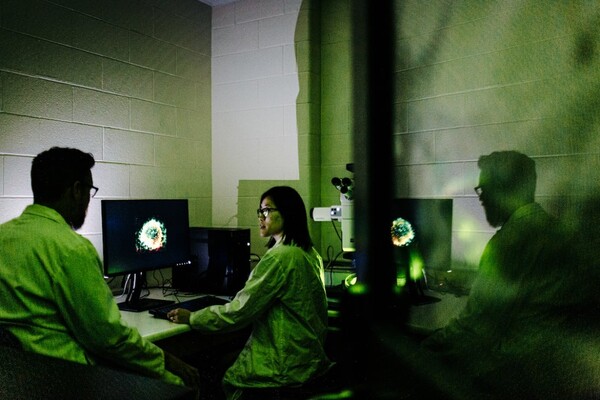Faces of U of T Medicine: Umberin Najeeb

Liam Mitchell
Dr. Umberin Najeeb, an Assistant Professor in the Department of Medicine, wants to understand the experiences of International Medical Graduate (IMG) physicians in Canada. An IMG physician herself, Najeeb has been conducting education research to enhance our understanding around challenges and issues surrounding IMG education and training. She is also involved in curricular design and implementing strategies to provide greater support. She has shared her work at national and international conferences like the Canadian Conference of Medical Education and the International Conference on Residency Education, as well as the College of Physicians and Surgeons of Ontario. Najeeb spoke to U of T Medicine about her research and how she’s applying the lessons learned.
What made you interested in researching this field?
I’m an internationally trained physician myself. I moved to Canada in 2004. I was a practicing internist for three years before we immigrated to Canada and I myself recertified and retrained when I arrived. I started to practice as an internist in 2009 after receiving my Royal College certification. So through my personal experiences and getting to meet and speak with a lot of other internationally-trained physicians, I came to realize that there was more that we should be doing to help them integrate and transition into the Canadian health care system. But first I wanted to collect data so that the conversation could be rooted in facts.
What was your experience like integrating into the Canadian health system?
It was competitive and challenging. I also had a one-year-old son at the time too. But fortunately I found out about a new program beginning at Sunnybrook and so I updated my resume and applied. I was fortunate to be hired as a Hospitalist Fellow, which was a great experience. I had all of the knowledge I needed to practice medicine – that remains the same – but understanding the cultural context, I think that’s what the Fellowship provided me with. I completed seven exams during my fellowship – both written and oral – which was stressful. I was then accepted into a residency position in Internal Medicine at U of T. I entered as a PGY-2 and thanks to strong reviews from my supervisors, I was promoted after one year to a PGY-4, so I completed my four-year residency in two years.
How did you find your experience during training differed from Canadian medical graduates?
It’s difficult to tease out. Sometimes you feel like it’s just your own self-perception, but other times you feel like your knowledge and skills are being doubted more than Canadian-born trainees. That’s why I decided to pursue this scholarly work. I used my first education grant to interview IMG residents – not the ones trying to enter the health care system, but those who are already in various training programs – about the challenges and opportunities they are facing during their residency. The first phase looked at foreign-born [Immigrant] medical graduates, like me, while the second phase looked at Canadian-born medical graduates who go abroad for their medical education and return for residency training. Both groups shared multiple challenges around transitioning but also expressed a perception of being treated differently, sometimes by their peers, sometimes by their supervisors and also by the system.
It’s easy to identify perception, but it’s much more difficult to say that it’s actually happening. However by starting the conversation, and acknowledging this is how people are feeling, we can start to consider how we can be more proactive and supportive.
What are some of the ways we can be more supportive?
Residents also identified some opportunities and the most striking was the need for mentorship and willingness to support their peers. Based on the results of my needs assessment, I designed and developed a longitudinal collaborative [peer and faculty] mentorship program for Internal Medicine residents at University of Toronto. The program has been running successfully for the last four years. We have structured meetings three or four times per year. Senior residents and I meet with junior residents to provide mentorship and support to help them integrate and transition successfully into their new academic environment. We also offer support in terms of career development and problem solving different issues faced by them. I obtained a grant to study and evaluate the effectiveness of the mentorship program and we found that the residents found the program very useful. They felt more supported and shared concrete examples of how the program had helped them.
The mentorship program provides a social network and starts new conversations that help us identify other strategies. Coming to a new country, or returning to a country after being away for eight years or more in a different academic environment, is stressful. Through these conversations, we’re identifying other issues and helping them to get connected to the resources that are available, be that the resident wellness program or research opportunities. There is no one right way to do this, but this is how I have been doing it within my program.
How is the notion of IMG residents evolving?
One of the big trends we are seeing is more Canadian-born IMGs, who have left to study overseas. They’ve been gone for a substantial period of time and they have to adjust too. I was speaking with one such resident who said that he/she felt like an “invisible minority,” because their colleagues don’t perceive them as been foreign-trained, but they still did need some support for integrating into the new academic culture.
Faces of U of T Medicine introduces you to some of the interesting men and women studying in the Faculty of Medicine. From advising political leaders to providing care to Toronto’s most vulnerable populations, our students are making an impact on communities at home and around the world. Do you have an interesting story to share? Send us an email at medicine.communications@utoronto.ca.
News


